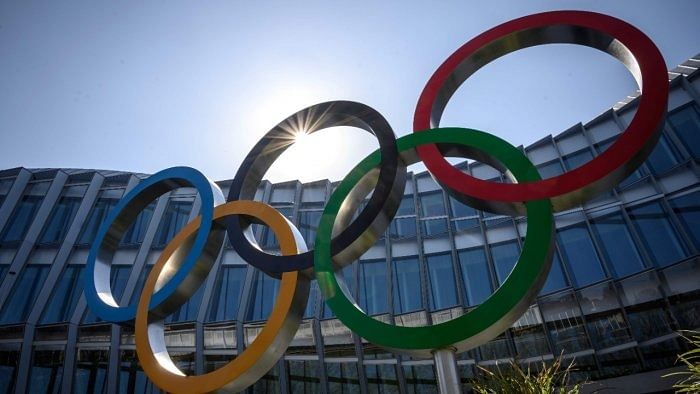
Three editions of Olympics (1916, 1940 and 1944) have been cancelled since the Games began in the modern era in 1896 due to two World Wars, but none had been postponed and held a year later before the Tokyo Olympics, which begins on Friday. But it’s not the first instance that Olympic athletes would be competing in a world reeling under a pandemic. It happened a century ago, in 1920, when the Games were organised in the Belgian city of Antwerp amid twin devastations – the Spanish Flu pandemic that swept around the world from 1918 until early 1920, killing an estimated 50 million people, and World War I, which had ended in 1918. The Spanish Flu was partly ‘overshadowed’ by the war, and the 1920 Olympics were meant to symbolise a recovery from WWI.
Belgian sports historian Ronald Renson’s 1996 book The Games Reborn: The VII Olympiad, Antwerp 1920 discussed the political, social and cultural context of the preparations, organisation and administration of the Antwerp Olympics, which marked the rebirth of the Olympic Movement. Antwerp was not completely ready for the fiesta though. American sportswriter Allen Guttmann wrote: “The facilities were far from ideal. The stadium was unfinished. The track was poorly built, and heavy rains made it worse. The Belgian public took little notice of the games.” Renson, however, observed: “In a minimum of time, they organised the games, but they were relatively improvised games.”
It’s difficult to compare two Olympics a hundred years apart. The number of competing nations has grown to 206 in 2021 from 29 in 1920, and the number of participants has increased to 11,000+ from 2,600. Olympics were predominantly centered on white, male athletes from privileged backgrounds in those days. Also, Germany and its wartime allies and Bolshevik Russia were simply not invited to Antwerp.
The legacy of Antwerp consists of the introduction of some important Olympics cultures like the raising of the Olympic flag with five rings, the releasing of the doves as a symbol of peace, and the reading of the ‘Olympic Oath’. There were some amazing performances, too. Italian fencer Nedo Nadi won gold in five of the six fencing events, and American swimmer Ethelda Bleibtrey broke world records to win in all three of the women’s swimming events. Antwerp marked the emergence of Paavo Nurmi, the ‘flying Finn,’ who won three of his nine Olympic gold medals there.
But, if 1920 is to be symbolised by only one player, that would be French tennis star Suzanne Lenglen, who displayed amazing tennis to win the gold medal in the women’s singles without losing a single set in the whole tournament. She also won gold in the mixed doubles and bronze in the women’s doubles. The women’s trophy of today’s French Open bears her name. In their 2003 book The 1920 Olympic Games: Results for All Competitors in All Events, with Commentary, Bill Mallon and Anthony Th Bijkerk noted that the Antwerp Olympics “helped the world to recover from the war, and perhaps allowed them to enjoy a sporting spectacle again, instead of having to worry about the future of mankind.”
The Spanish Flu pandemic had almost ended by the time the Antwerp Olympics took place. But Covid-19 is very much still around as Tokyo Games begin. While the concerns in 1920 were mostly financial and logistical, those around the Tokyo event relate to safety and public health. Can Tokyo 2021 be of similar relevance as Antwerp 1920 amid the global pandemic?
Also read: Tokyo Olympics: How Japan’s bid for soft power victory has been roundly defeated by the pandemic
Eight years had passed since the last Olympic Games of Stockholm 1912 as the scheduled Berlin 1916 Games had been cancelled due to WWI. Had the 1920 Olympics not taken place, the International Olympic Committee (IOC) had feared, it would lose its relevance, as Renson observed. Similarly, the IOC’s relevance would have been at stake if the Tokyo Olympics had been cancelled. As it is, the 2022 Beijing Winter Olympics is under the shadow of boycott by many countries over China’s human rights issues.
Still, Tokyo 2021 might be the “most unwanted” Games in the history of modern Olympics. About 80% of the Japanese people wanted cancellation or further postponement of the Games due to the ongoing pandemic. However, the IOC was not in a mood to oblige.
At the memorial service of the 11 murdered Israeli team members during the 1972 Munich Olympics, then IOC president Avery Brundage refused to cancel the remainder of the Games, declaring that “the Games must go on”. Although Brundage’s statement was mostly applauded at that time, the decision to continue the Games has since been harshly criticised. The IOC’s decision to continue with the Tokyo Games will also be under the scanner for sure.
(The writer is Professor of Statistics, Indian Statistical Institute, Kolkata)